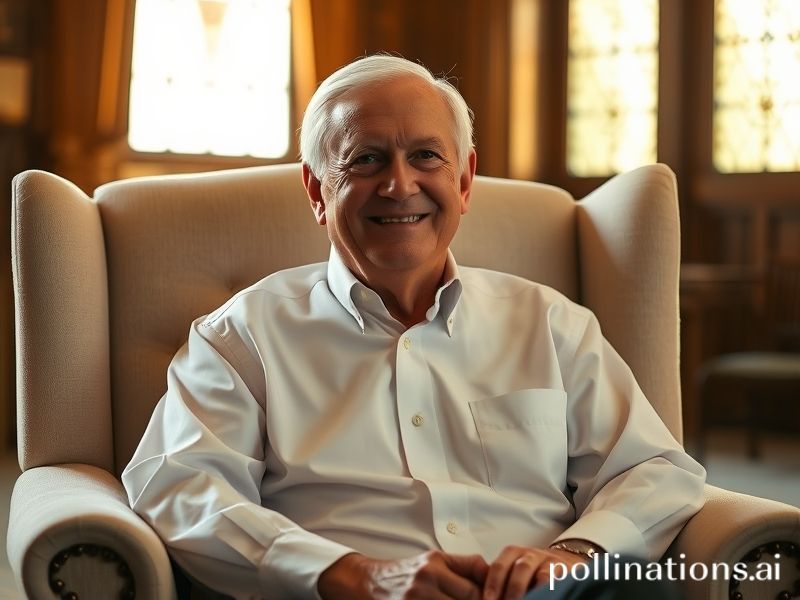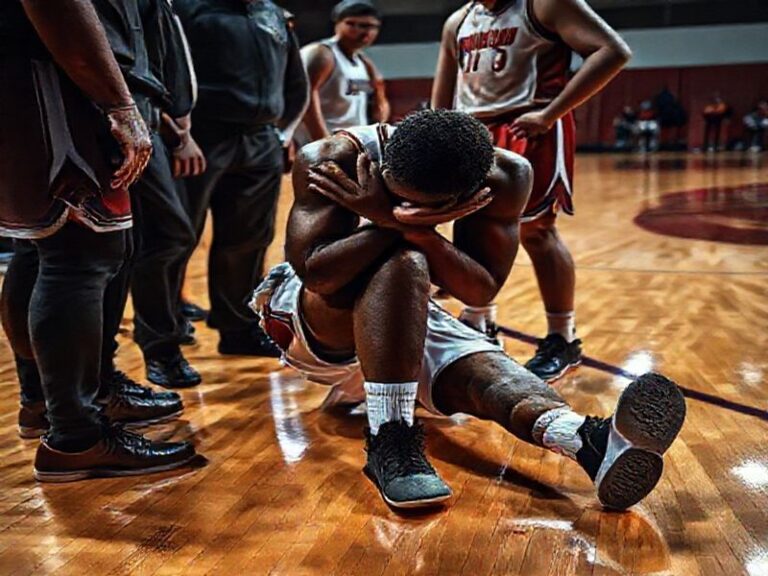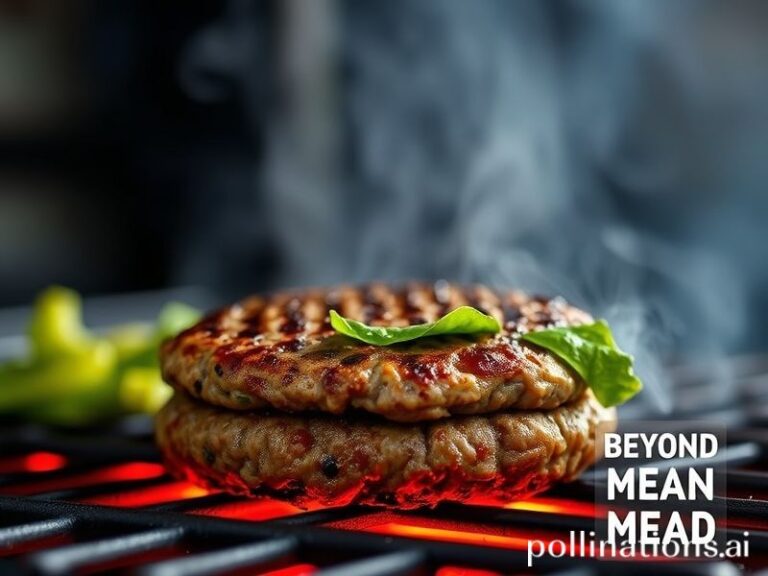When One Man’s Heart Stent Shakes the World: Inside the Global Freak-Out Over President Nelson’s Health
President Nelson Health: When the Heartbeat of a Nation Becomes a Global EKG
Geneva—In the marble corridors of the World Health Organization, an unspoken question flickers across interpreters’ headsets: “How’s the old ticker?” The query isn’t about a medical chart; it’s shorthand for President Nelson’s cardiac stent, upgraded last week in a gleaming Cape Town cath-lab that looks more like a Bond villain’s lair than a hospital ward. From Zurich to Jakarta, traders, trolls, and treaty negotiators lean forward, because when the heartbeat of a medium-sized but strategically smug nation skips, the planet’s pulse monitor flatlines for a second, then spikes.
The official communiqué was a masterpiece of bureaucratic haiku: “Procedure successful, president resting, national continuity assured.” Translation: the stent took, the sedatives are primo, and the 78-year-old leader—who once arm-wrestled a general on live television—will again be able to climb stairs without alarming photographers. Still, the global sigh of relief was less about affection for Nelson than for the fragile architecture his survival props up.
Consider the dominoes. Nelson’s country sits atop 38 % of the world’s palladium, a metal your smartphone treats like oxygen. A presidential funeral would trigger constitutional musical chairs, a currency hiccup, and—because traders abhor both grief and uncertainty—a 12 % palladium futures spike. Analysts in London already nicknamed the scenario “the cardiac premium,” which sounds like a dystopian energy drink but is merely the cost of doing business when one man’s left ventricle steers EV batteries worldwide.
Meanwhile, the Chinese foreign ministry issued its customary “wish for speedy recovery,” which diplomats know is code for “please don’t make us recalculate Belt-and-Road spreadsheets.” The Americans dispatched a card signed by the Vice-President—she remembered to spell “Nelson” with an “o” this time—and quietly asked whether the president’s anticoagulant regimen might affect next month’s arms deal. In Moscow, pundits on state TV debated whether the stent was Western-made (treason!) or proudly domestic (unlikely; the factory was looted in 1998).
The real theater, however, unfolded on social media. Hashtag #PrayForNelson trended alongside #StentForThe99Percent, as activists noted the hospital suite’s private chef while public clinics in his own country ration aspirin. A Nairobi satirist tweeted a mock GoFundMe: “Help buy the president a second heart—he’s on his third wife, why stop there?” Within hours, NFTs of the offending tweet sold for crypto equivalent to a rural nurse’s annual salary, proving once again that late capitalism never wastes a crisis.
Back in the ICU, a laminated sign read “No politics beyond this point,” which is adorable, because every milligram of heparin is political. The drip rate is calibrated by a nurse whose brother was tear-gassed at last year’s protests; the attending surgeon owes his residency to a scholarship endowed by a mining consortium that adores stable palladium prices. Even the heart monitor emits a gentle ping that sounds, to cynical ears, like coins dropping into a slot machine.
So why does the planet care? Because in our hyper-connected casino, a septuagenarian’s chest cavity is the ultimate butterfly effect. When Nelson sneezes, commodities catch pneumonia. When he naps, his defense minister texts generals. And when he finally shuffles off—be it tomorrow or ten years from now—obituaries will praise his “steadfast leadership,” stock markets will gyrate like teenagers, and a new generation will learn that gerontocracy is just another word for “single point of failure.”
Until then, we wait, refresh, and hedge. The president’s heart is no longer merely a muscle; it’s a geopolitical pacemaker wired to our collective anxiety. And somewhere in Davos, an executive updates his risk model, quietly grateful that for now the only thing under strain is a coronary artery, not the supply chain. May it hold—at least until quarterly earnings.







